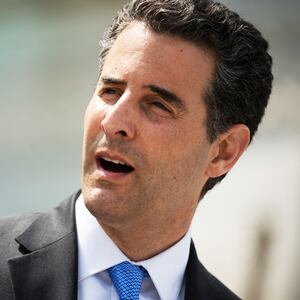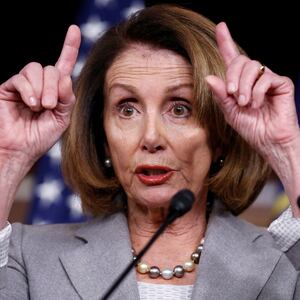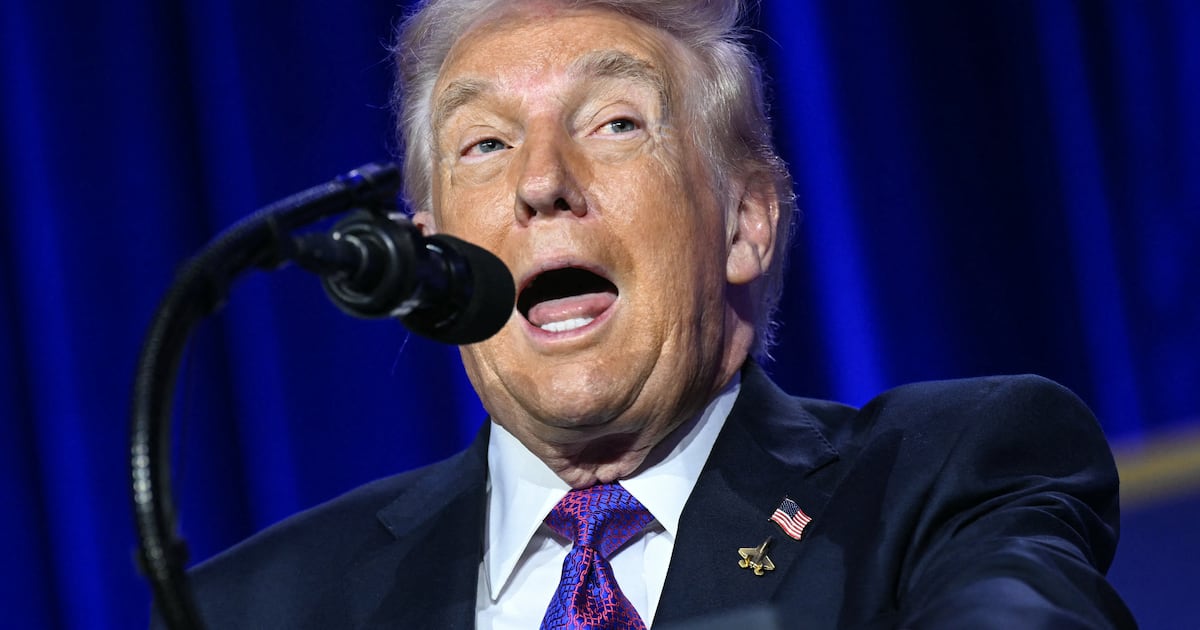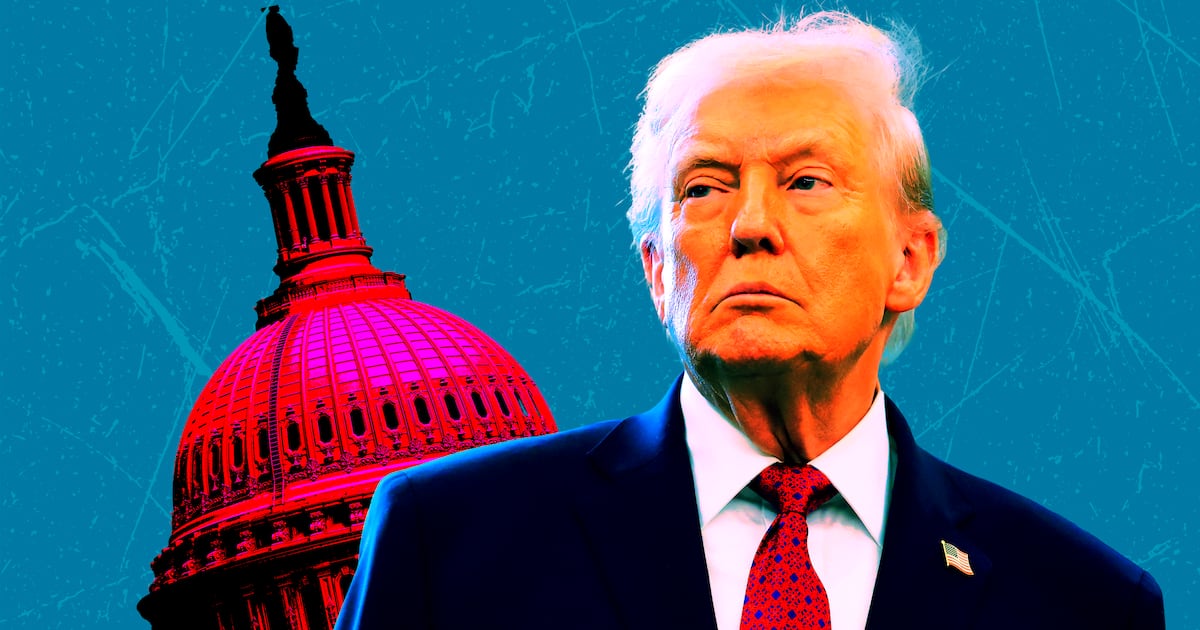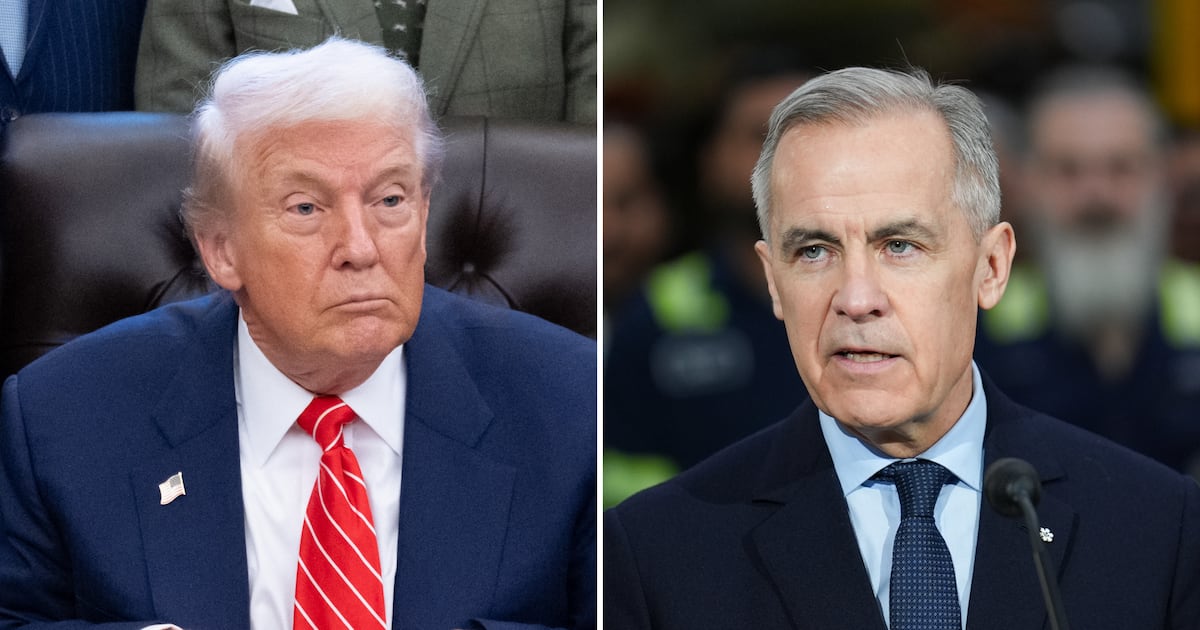Nearly two years of organizing, marching, candidate recruitment and unprecedented fundraising has led the Democratic party to a critical moment. On Tuesday, it can either reassert itself politically or fall short, prompting an utter and complete psychological meltdown.
Most in the party believe that the path they will go down will be the former; that they will gain a majority in the House of Representatives for the first time since former President Barack Obama’s first term. But paranoia is part of the Democratic DNA, especially after the shock of the 2016 election. And in the final stretch of the midterm campaign, a scenario in which the party is unable to flip the requisite 23 House seats looms in the dark recesses of the mind.
“It will be paralyzing for a while, it will,” said Neera Tanden, president and CEO of the Center for American Progress. “Candidly, I think there will be a fair amount of soul searching and people will feel back on their heels... We will have to rebuild. But the resistance is built on opposition to [Donald] Trump's extremism. And the more extreme he is, the more we will have.”
Or, as veteran Democratic strategist Paul Begala put it: “After all this work, all these volunteers, it would be absolutely shattering.”
Few midterm elections have taken on as much significance as the current one. That is, in part, because much of what happens on Tuesday will determine whether there will be a federal check on President Trump’s political powers. But the elections will also have an outsized impact on the composition and direction of the Democratic Party as well, from the policies it pursues, to the candidates it runs, to the approach it takes in the next presidential contest.
Party officials say that, should they win on Tuesday, they will pursue an agenda meant to reflect the desires of their constituents while still recognizing the reality of a Republican occupying the White House (and likely running the Senate). In conversations, aides listed anti-corruption legislation, infrastructure repairs, bills to lower the costs of prescription drugs and expanding health care access as top priorities. The party would also have subpoena power, which would allow it to investigate the President’s finances, the federal response to Hurricane Maria and various ethical entanglements of administration officials.
“One of the issues that resonates everywhere that I think Democrats will take a very quick action on is around democracy reform,” Rep. Pramila Jayapal (D-WA), who serves as vice chair of the Congressional Progressive Caucus, told The Daily Beast in an interview. “Really overall, I think we’re going to see a lot of accountability measures, looking at what has happened, looking at what the Trump administration has done, looking at the emoluments clause, looking at personal gain. There will be I think a lot of hearings around exactly what’s happening and trying to get control of the government again so it works for the people again.”
But officials fear there are dangers in going after the president too hard; the primary being the risk of turning him into a victim in the minds of the public. The key, several Democrats said, would be to choose ripe topics to investigate without looking overzealous. That would mean restarting the House Intelligence Committee’s investigation into Russia’s 2016 meddling but waiting for Special Counsel Robert Mueller’s findings before making any political determination on the matter.
“If we win it will be because people are tired of the negativity so I don’t think spending all our time going after Trump is where we should be,” said Howard Dean, the former DNC chair. “Should we do investigations? Of course. He is a corrupt despot. But the focus should be on what we should do for the country.”
One factor that will heavily impact the direction the party goes is the composition of its members. And a Democratic House majority would likely feature a historic share of women and women of color, whose candidacies, strong biographies and unapologetic progressivism will inform the type of members they would be.
“The candidates are different this year, than I’ve ever seen,” said Rashida Tlaib, the Democratic House candidate in Michigan’s 13th Congressional District, who is poised to be the first Muslim woman in Congress (along with Ilhan Omar in Minnesota). “ And they’re diverse and they’re real and they’re not what I would call name-recognition or dynasty type candidates. We all have names that nobody has ever heard of.”
For several of the candidates, the difficult votes may start early. A slew of Democrats running for the House have said that they would not support House Minority Leader Nancy Pelosi (D-CA) as speaker. But if the party were to regain the majority, they may be forced to break that pledge. Top aides say that’s a cross-that-bridge-when-we-get-there problem; though the expectation is that Pelosi will give members enough assurances to get the needed votes.
But once Democrats get past that hurdle, they will confront others. There will be pressure on members to rein in the Trump administration alongside the usual congressional demands to bring back victories for one’s district. Many of the expected incoming class will also have run on promises to reform the institutions of the Democratic Party itself.
“The lesson learned here is to not make assumptions about who desires and deserves to have a seat at the table of democracy. And that we’re going to have to dig a lot deeper and to make this relationship about something more than the transaction and exchange of a vote,” Ayanna Pressley, Democratic House candidate in Massachusetts’ 7th District told The Daily Beast. “I think our campaign was about more than just resisting. It was about how to resist and how to progress.”
But to get to a place where you can both resist and make progress, you have to win first. And though Democrats are well positioned to take over the House, the possibility of them falling short is not nonexistent. Because of the gerrymandering of congressional districts and the distributions of the voting population, Democrats could win a healthy majority of the total votes cast for House members and remain in the minority.
“I can’t even contemplate it, it would be so indescribable,” said former Rep. Steve Israel, who chaired the Democratic Congressional Campaign Committee until 2014, told The Daily Beast in an interview. “I just don’t see it happening. If it did, in the unlikely event that it did, it would probably count as one of the biggest moral blows to Democrats in recent memory. Second maybe only to our presidential loss in 2016.”
Israel said that, at this point in the cycle, he couldn’t imagine such a “catastrophe befalling House Democrats.” And for good reason. The party has a consistent lead in the congressional generic ballot. There has also been a massive surge in early voting, that seems to reflect an energy from the party’s base that officials say they have not witnessed before. And apart from the individual races in congressional districts around the country, Democrats also feel confident about their gubernatorial candidates in the Southeast and Midwest, which they believe could provide strong residual effects for down-ballot candidates particularly if they’re successful in energizing new and infrequent voters.
“There’s nothing planned,” Washington’s Democratic Governor Jay Inslee, who also chairs the Democratic Governors Association, told The Daily Beast. “There’s only efforts to go 100 percent and hope that we do as well as we can. No one is banking on anything. I haven’t talked to a single Democrat who says ‘I think I’ll stay home because it’s in the bag.’ We’re not faced with that problem.”

